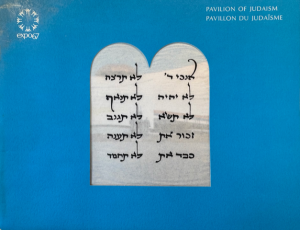Most of the ultra-Orthodox (haredi) Jews in Israel live below the poverty line. Their large families and limited economic circumstances – usually only wives are breadwinners while husbands study Torah in one of their institutions – make it almost impossible to have a comfortable standard of living.
In theory, this should adversely affect well-being and life expectancy, as it’s generally accepted that the well-to-do live both better and longer lives than the poor. Like with other low-income people who eat what they can afford, rather than what’s good for them, the diet of haredim is said to be less than wholesome. Also, as a group, they don’t seem to do much physical exercise. Many are obese.
And yet, according to the State of the Nation Report 2015 by the Taub Center, a leading research institute in Israel, life expectancy among haredi men is said to be three years higher than in the rest of the male population. And haredi women live 18 months longer than other women.
READ: WHAT’S REALLY BEHIND THE ORTHODOX UNION’S PROCLAMATION AGAINST WOMEN RABBIS?
Researchers Dov Chernichovsky and Chen Sharoni report that “the relatively good health of haredim is related to the fact that these communities have high levels of social capital.” This means “social trust, norms, and networks and includes aspects of life common to the haredim: a high number of social relationships, high levels of satisfaction with family relationships, strong social support systems and high levels of volunteering.” We’re also told that “a relatively low percentage of haredim report feelings of loneliness.”
‘life expectancy among haredi men is said to be three years higher than in the rest of the male population. And haredi women live 18 months longer than other women’
The argument is noteworthy, but seemingly insufficient. After all, there are many groups, Jewish and otherwise, religious and secular, that practise what the researchers ascribe to haredi social capital, yet they don’t seem to result in comparable levels of well-being.
Therefore, perhaps a factor that’s at least equally important to social capital is that the haredi world offers its adherents relative freedom from making personal decisions. Haredim don’t seem to have to decide about such vital issues as lifestyle, career and other matters that burden those of us who live in open societies and are exposed to many, often contradictory, options.
This isn’t to say that haredi lives have fewer pressures and problems, but the system to which they subject themselves imposes solutions that greatly reduce – even eliminate – the dilemmas of individual decision-making.
That may also be why many young Jews from middle-class homes, beneficiaries of a solid western education and often encouraged to make up their own minds about careers, spouses and where to live, have been “born again” into haredi sects. There, often to the amazement of their parents and relatives, they find much more happiness than before.
READ: HOW REMOVING MY KIPPAH – AND REGRETTING IT- TAUGHT ME A VALUABLE LESSON
The attraction of the haredi lifestyle may in some ways be a manifestation of disdain for the way most of us live in the ostensibly enlightened, open and democratic West.
Committed though I am to Judaism and the Jewish way of life and familiar with the teachings and norms of Orthodoxy, I’m among those who cannot in good conscience embrace haredi Judaism.
Still, I find much of haredi Judaism’s implied or explicit critique of the western way of life compelling, and am not surprised that some children and grandchildren of middle-class Jewish families choose to seek shelter there.
It also helps me to understand why others, particularly young Muslims reared in the enlightened West, find their way to fundamentalist groups, some of who propagate extremism. These groups may not offer longevity, but they promise eternal bliss as an alternative to bourgeois anomie.
It also explains why many haredi institutions are financially supported by non-Orthodox, at times totally non-observant, Jews. It may serve as an insurance policy against the burdens of modern living. They seem to find it easier to pay for others to live what they perceive to be virtuously and modestly than to try to modify their own way of life.







